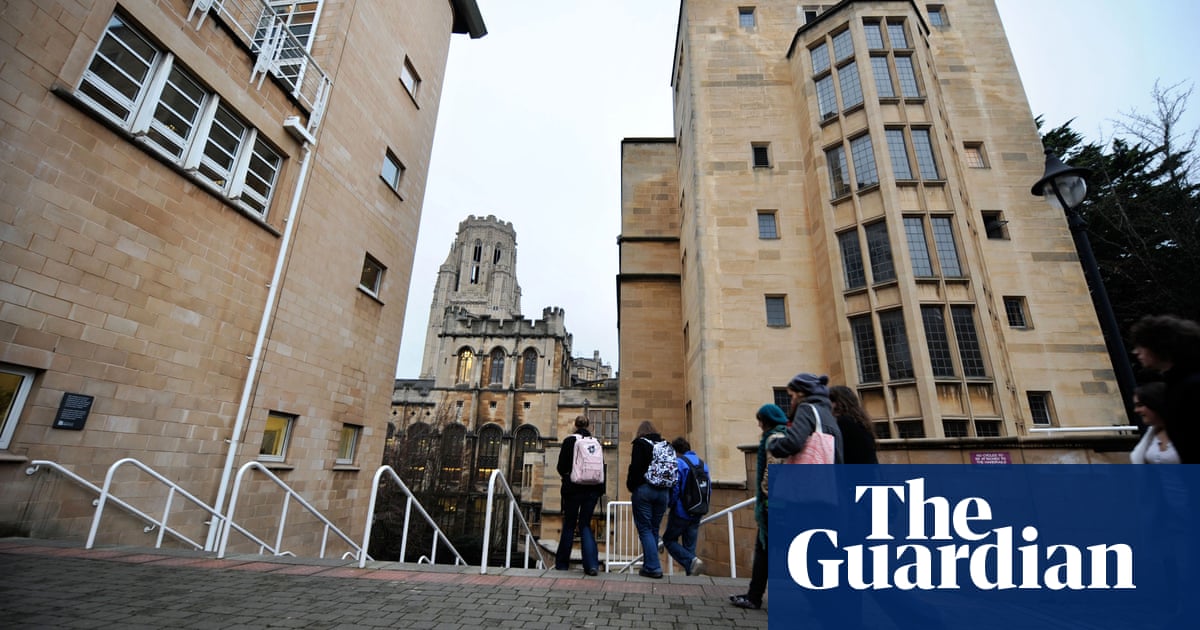
Vice-chancellors are warning the current funding model for UK higher education is “broken” and have urged the government to review the system of tuition fees, which have been capped at about £9,000 for more than a decade.
They have made clear that limits to overseas students announced last week on top of rising costs caused by inflation posed a serious risk to universities which would require more funding from government.
Under government proposals only overseas students on courses designated as research programmes, such as PhD students or research-led master’s courses, would be able to bring dependants with them under measures to curb net migration.
Universities have become increasingly dependent on fees from international students to prop up their finances and vice-chancellors are waiting to find out the impact of the announcement on applications from abroad. There are fears that some universities could find themselves squeezed between the plummeting value of domestic tuition fees and declining overseas recruitment.
According to Universities UK (UUK), which represents 140 higher education providers, the £9,000 tuition fee for UK students, which was introduced for English universities in 2012 and was topped up to £9,250 five years later, is now worth just over £6,500 to universities.
Vice-chancellors know that any move to increase tuition fees would be politically unpalatable, but against a backdrop of high inflation and the cost of living crisis, higher education funding is forecast to drop to its lowest level in real terms since the 1990s, while the proportion of English universities reporting an in-year deficit increased from 5% in 2015–16 to 32% in 2019–20, UUK says.
Prof Chris Husbands, the vice-chancellor of Sheffield Hallam University, said raising tuition fees might seem the most obvious response but was not a sustainable solution to the problem.
“It’s not the way to go for students,” he said. “So the solution has got to be a hybrid public-private model, possibly based on a teaching grant for higher-cost subjects, underpinned by loans which could be set at the cost of teaching lower-cost subjects, plus a maintenance offer for poor students.”
He added: “This country has an outstanding university sector and the government – and opposition – need to get to grips with what makes this an outstanding university sector, and be prepared to take the decisions to keep that.
“Because if we don’t make decisions in the best interests of the sector, then in four or five years’ time we’re going to be a lot weaker internationally. That’s my big worry.”
There are also fears that impending hikes to employer contributions to the teacher pension scheme, used by staff at 80 post-1992 universities, will add to the financial pressures on some more vulnerable institutions. Courses may have to be axed and staffing reduced as finances are squeezed.
Prof Charlie Jeffery, the vice-chancellor of the University of York, agreed the system was broken. “There is a growing recognition across all sides of parliament that the current system is now under real pressure. Inflation is driving up costs in a way that frankly we haven’t seen [before].
“That of course impacts hard on the money we get for home undergraduate education, which is basically flat and has been for a decade. Most universities will now be losing money on teaching.
“That’s a difficult place to be at the best of times, and it does require us to think of the other income streams that can help us achieve all of our objectives. By far the most significant one of those is international students.
“And therefore it adds to the pressure if you see changes in policy which might undermine the UK’s attractiveness to international students.”
Asked if it was now time to look at the domestic tuition fee again, Jeffery said: “It is exactly the time to look at that question. I wouldn’t pose it just in that way, because there are different ways in which you can finance higher education.
“One answer could be reflecting the importance of universities to the economy in various ways: you actually put in more public funding and don’t put it all on the individual shoulders.”
There are already concerns about the impact on students of changes to tuition fee loans, which come into force from September and will see future graduates paying back their university debts earlier and for longer than any generation before them.
Under the new measures, the income threshold for repayment in England will drop from £27,295 to £25,000 and instead of outstanding loans being written off after 30 years extended another decade.
Prof Steve West, the vice-chancellor of the University of the West of England, said universities were also falling short with just 75-80% of the cost of research covered by funding. “So you’ve got a perfect storm where you’re losing money on home tuition and you’re losing money on research.”
Asked about revisiting tuition fees, he said: “I think it’s difficult running towards an election because at the moment it’s not a doorstep issue and no political party wants to make it one.”
West said: “In the absence of any increase in domestic fees, we will continue to see deterioration in the sustainability of institutions, and the less attractive we are to international students, we make it even harder.”
He said he did not think a wholesale shift in the funding model was possible, but more a tweaking of the current model.
Dr Tim Bradshaw, the chief executive of the Russell Group of research intensive universities, said: “Universities will always work to run as efficiently as possible so they can continue to deliver the best possible student experience.
“However, as costs rise and deficits grow, universities’ ability to mitigate the impact on quality and choice for students is limited. That is why we are calling for a more sustainable approach to funding higher education that is fair and affordable for students and the taxpayer and protects the pipeline of skills to support innovation and economic growth.”
A Department for Education spokesperson said universities were independent from government. “This means that universities decide their business models and oversee issues such as admissions, staff recruitment and pay.
“To support our world-class higher education sector, we’re providing £750m of extra funding over three years to support universities to invest in world-class facilities and offer more high-quality courses, supported by our taxpayer-backed student finance system.
“We are hugely proud to have met our international student recruitment ambition two years running by attracting over 600,000 international students. As we made clear in the recent update of the International Education Strategy, the sustainable recruitment of international students remains a priority.”












